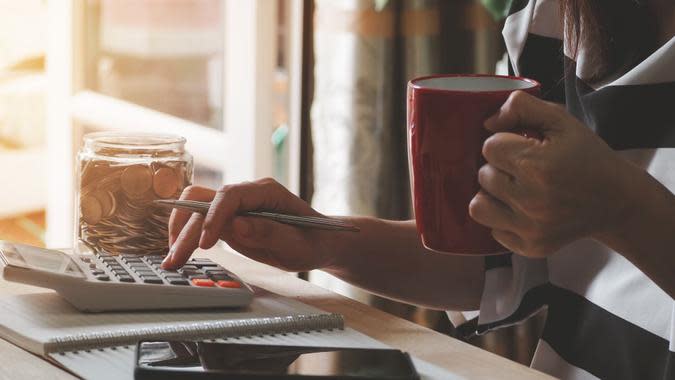Few things are better for your financial health than getting out of debt, and those who do will reap the benefits into their golden years.
See: 6 Ways to Tell If You’re Financially Smarter Than the Average American
Learn: 6 Genius Things All Wealthy People Do With Their Money
“From my interactions with clients, those who enter retirement without the burden of debt can significantly enhance their quality of life,” said Mike Kojonen, founder and owner of Principal Preservation Services. “They have the flexibility to travel, pursue hobbies, and provide for their families without the stress of ongoing financial obligations. Being debt-free means not only the elimination of credit card interest, student loans, car payments, overdraft fees, and mortgage payments but also the freedom to allocate resources toward fulfilling retirement goals. Savings can be redirected towards investments, emergency funds, or even legacy planning for loved ones.”
These are just a few of the bills you’ll never have to pay again when you become debt-free — and just think of what you can do with that money instead.


Mortgage Payments
Many experts classify mortgage loans as “good debt,” but even if that’s true, it’s never as good as owning your home outright and eliminating the crushing burden of housing costs.
“You’ll never have to worry about another mortgage payment once you have finished paying off your home,” said Ann Martin, director of operations for CreditDonkey. “This one comes as a huge relief to many, especially since mortgage payments are spread out over 15 to 30 years.”
As Kojonen explained, it’s not just the absence of that bill that will change your financial life, it’s what you can do with the money you’re not paying to the bank.
According to a LendingTree study, the average monthly mortgage payment is now $2,317. If you invested $2,317 per month with 7% returns, you’d have nearly $170,000 in just five years.
Read: 5 Unnecessary Bills You Should Stop Paying in 2024
Find: 6 Ways To Build Wealth in Less Than Five Years
Sponsored: Owe the IRS $10K or more? Schedule a FREE consultation to see if you qualify for tax relief.


Student Loan Payments
Jake Hill, CEO of DebtHammer Relief, specializes in helping people escape the burden of the money they borrowed.
“One of the greatest things about achieving freedom from debt is how much it simplifies your budget,” he said. “For example, people who are debt-free no longer have to worry about budgeting for car or credit card payments. However, one of the best parts of becoming debt-free is knocking longer-term bills off of your list. Student loans, for instance, are often paid for at least a decade, and making your final student loan payment is thus a very gratifying moment.”
According to the Education Data Initiative, the average monthly student loan payment is $503. If you invested $503 per month and earned 7% gains, you’d have nearly $37,000 in five years.
Discover: I’m a Bank Teller: Here Are 10 Mistakes You Are Making With Your Banking


Car Payments
According to LendingTree, the average new car payment is $726 per month, which could have sufficed as a rent payment just a few years ago. Auto loans are the No. 3 largest debt category behind only mortgages and student loans, the latter of which car loans are close to catching for the No. 2 spot.
When you make your last car payment, that cash is yours to put to work for your future. If you invested $726 per month and earned 7% returns, you’d have more than $53,000 after only five years.


Credit Card Finance Charges
As the CEO of Credit Summit Debt Consolidation, Carter Seuthe knows the freedom that comes with paying off your final credit card balance. With an average APR now in the loan shark realm of nearly 28%, few experiences are more financially liberating.
“Credit card interest payments are the big ones I see people being most relieved to be free from once they’re debt-free,” said Seuthe. “These bills can really represent a pretty significant drain on your resources each month, and I think lots of people don’t even understand just how much interest payments eat into their monthly budget until they no longer need to account for them.”
If you made the minimum payment on a $1,000 balance at 28% interest, it would take you 51 payments over four years to wipe it clean and you’d spend $709 in finance charges on top of the $1,000 you borrowed.


Bank Fees
While borrowing isn’t directly connected to overdraft fees, insufficient funds fees, returned check fees and all the other charges that banks hit their customers with cause a ripple effect of debt that spills over into every aspect of your financial life. People in debt are mostly likely to incur fees from financial institutions, which often leads to even more toxic borrowing.
“These fees often catch people at their most vulnerable and can add up quickly, creating a cycle of debt that’s hard to escape,” said Jared Stern, managing member of Uplift Legal Funding. “By managing your finances effectively and staying out of debt, you can keep more of your hard-earned money. I recommend setting up alerts with your bank to notify you of low balances and considering a small line of credit as a buffer to avoid overdrafts.”
More From GOBankingRates
This article originally appeared on GOBankingRates.com: 5 Bills You Never Have To Pay When You Become Debt-Free
